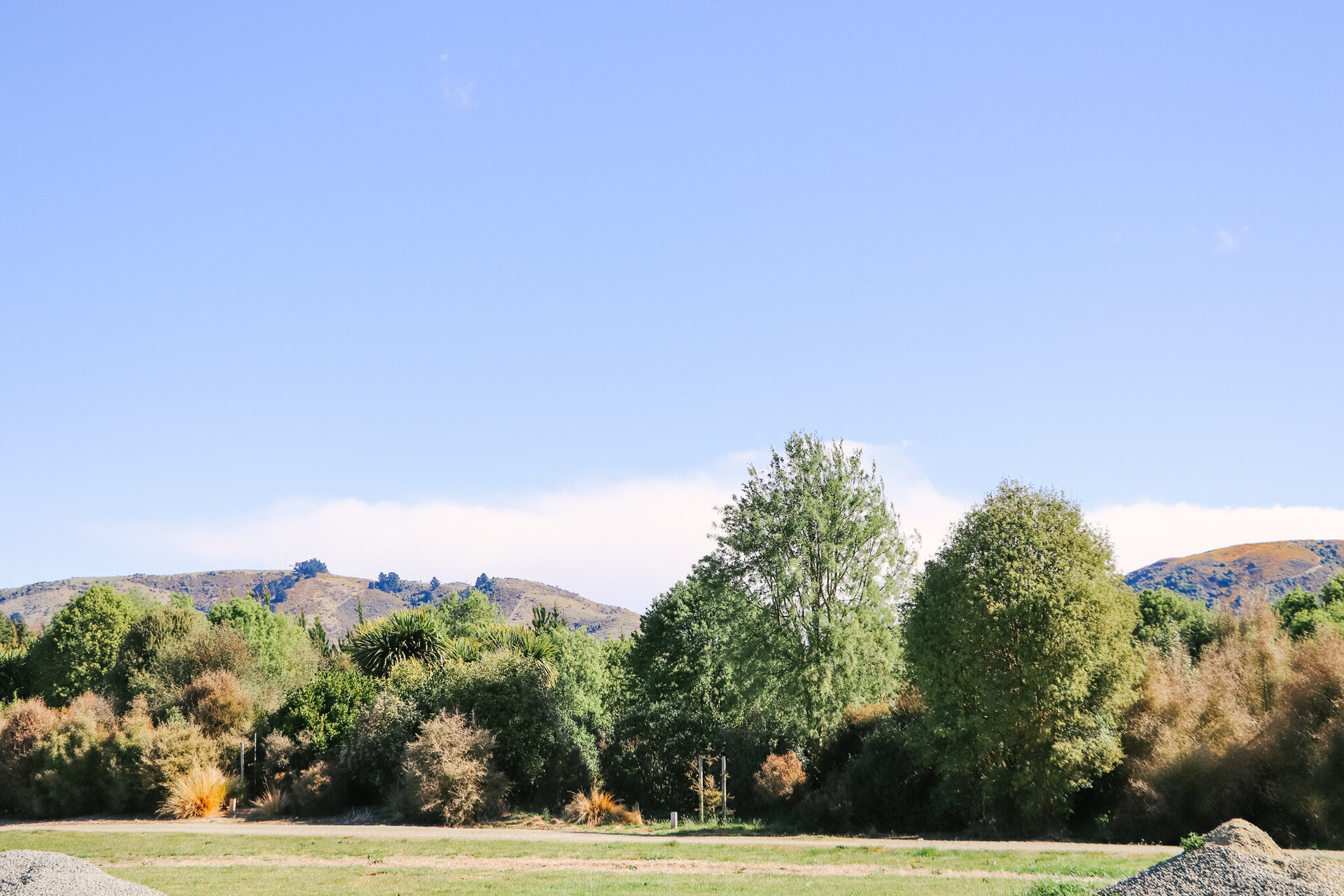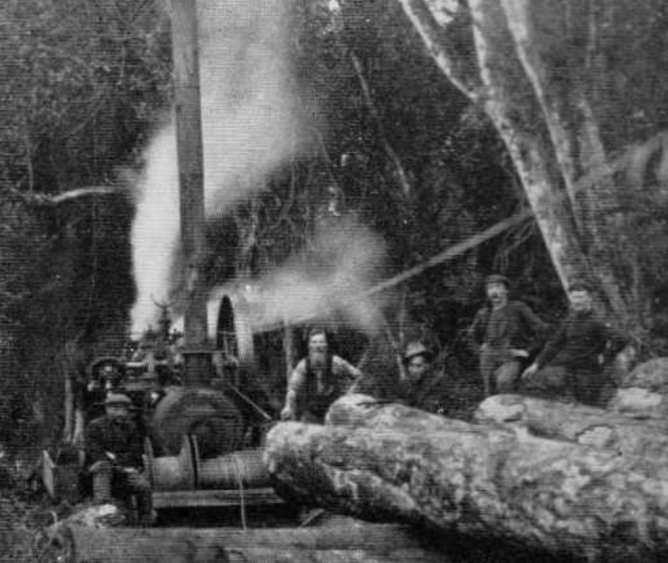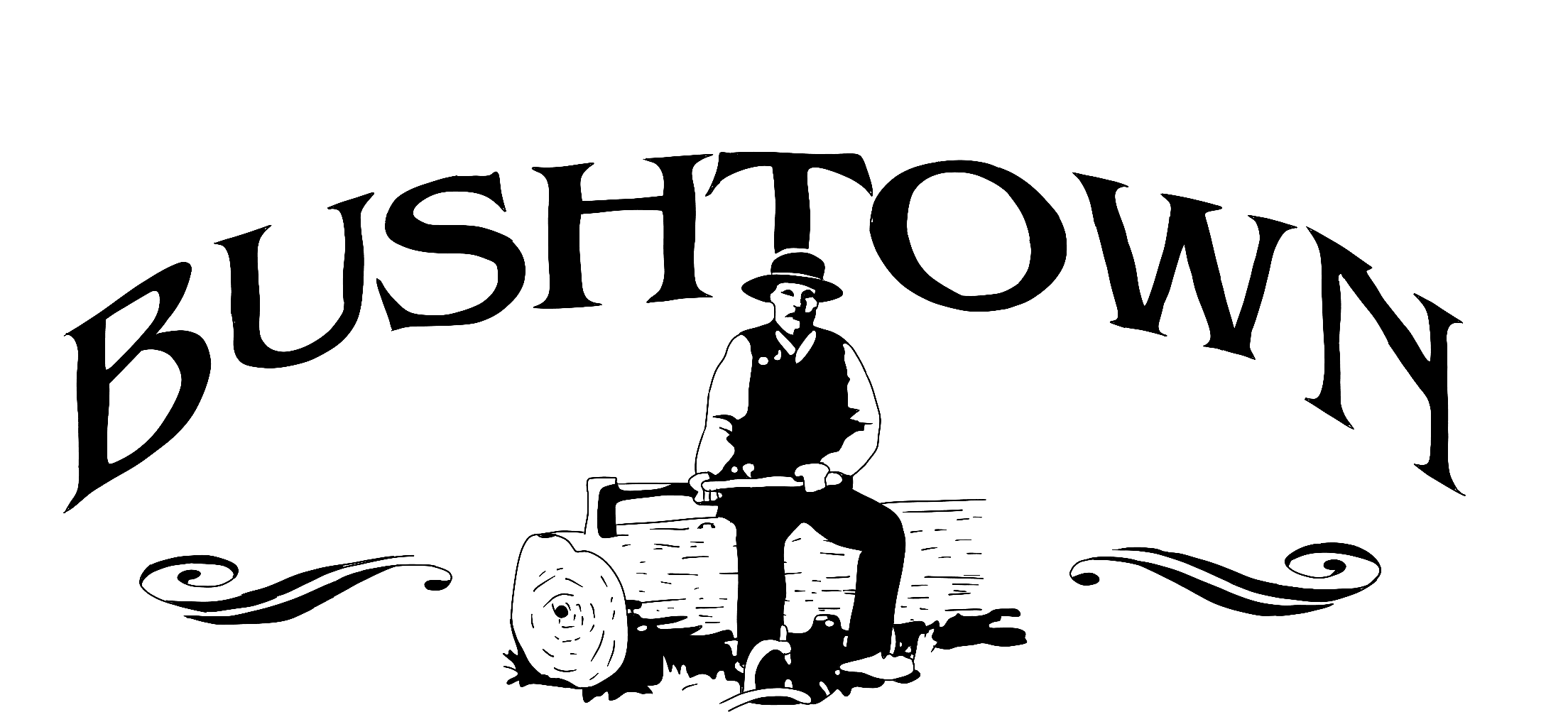from TALES OF PIONEER WOMEN
By "Te Wahine," Waituna W.I.
"Tell you the story of the bush fire, children? But I have told it to you so many times before, why worry poor grandma to tell it again?
It is ever fascinating, you say. Well, well, settle down around me, and once again I will recall those dreadful days and nights of long ago." "Your grandpa and I had recently been married, and we lived in a bush cottage on the east bank of the Waimate Creek, just where it flowed alongside the bullock track leading to Bruce's saw-mill.
This was one of the five steam sawmills then at work in the 3,000 acres of native forest that once stretched from the foothills to the site of the present town."
"Ours was a beautifully situated little house amid the tree ferns, and within the Sound of the murmuring stream. We had everything, had Jim and I, to make us happy,love and companionship, and employment and plenty. Our cottage was well stocked with the necessaries of the time,much less, of course, than you young folk think indispensable today."
"The situation was perfect in natural beauty. Rising above the tallest trees were the Hunters Hills in the immediate west, with Mount Studholme towering over 3,000 feet above us to the north."
"From the little hill behind the mill, one could view the Pacific, eight miles to the east, and 200 feet below. In the afternoons I loved to sit beside the creek, listening to the bellbirds and countless others making music, as they perched on the branches of the trees, beneath whose shade the ground was carpeted with ferns. The sun shone through the leafage, dappling with flickering, liquid gold the little bower in which I sat, the while I idly picked and ate the fuchsia berries from the tree against which I leant."
"Yes, children, that was a lovely period of my life, but it was soon to be tragically changed. The year was 1878 I remember it so well and the date was November 15th, when in the early morning a terribly fierce gale sprang up from the north-west. Soon it blew with a force so great that it was dangerous to be outside the house." "Smoke that was ever rising from the burning sawdust heaps at the mills, thickened up and darkened the morning. Then, high above the tree tops, I saw flames break forth, the bush was on fire. The wind was blowing in our direction, and my heart throbbed with terror. I ran to the house of my nearest neighbour, and found her in an agony of fear as she gathered her little children to her, longing for the reassuring voice of her husband. But we were to see no husbands for many hours."
"The call had gone forth for all workers to concentrate on the burning area, in an endeavour to stay the progress of the flames, but it was a hopeless task from the beginning. in face of that howling gale." "Michael Studholme, the first settler, hastened to the scene, but, while driving along the track, his buggy was blown over. Nothing daunted, he continued his journey." "The sawmill nearest the burning area was soon surrounded by the flames and destroyed. The homes of the workers went up in smoke, and became little heaps of ashes."
"As evening fell, we noticed that the wind had veered a little, and was carrying the fire northward from us. Late at night, we retired with a feeling of safety, and offered prayers of thankfulness for our escape.
"But, oh, children, before morning your grandpa and I were compelled to flee in our night clothes before the fire, so suddenly was the burning upon us. Down into the township a mile away we fled with our neighbours, and we were most kindly treated and housed by the townsfolk.
"Day after day, that fearful fire raged. Seventy houses were destroyed and five steam sawmills went up in flames when that beautiful and valuable bush was ravaged by fire. How the poor birds and native bats fluttered and fell before the cruel flames, and how many of them followed behind us as we fled to the township.
On the housetops they sat, distressed and desolate, while overhead the smoke blackened the sky, and on the fierce wind sheets of roofing iron were borne miles away towards the sea."
"For eight days the destruction went on, and many deeds of heroism were done. Brave men went back into reach of the burning area to seek for those who might still be in danger, and not one life was lost."
"But, my children, what a scene of desolation, when at last the wind dropped, the fires dwindled and went out. Nothing was left but smouldering logs and blackened stumps, where the forest giants had once lifted their green heads."
"Far away to the foothills there was still bush left standing which had been outside the driving flames, but there was now little occupation for the many men who had once found employment in sawmilling. Many people drifted away to other places, but your grandpa found work at his trade, and we stayed on here to witness the building up of a community on the ashes of destruction."
"Times were hard at first, and it was twenty-five years before Waimate regained that 1,400 of population possessed at the outbreak of the great bush fire. But during the long years we prospered and grew to love Waimate, because it was Home indeed.
In the words of the song, Waimate Home:
" Where the early settlers sleep,
And the hills their long watch keep,
There wherever I may roam,
Our Waimate, there is Home."
THE BURNING OF THE WAIMATE BUSH, 1878
May 7, 2020


